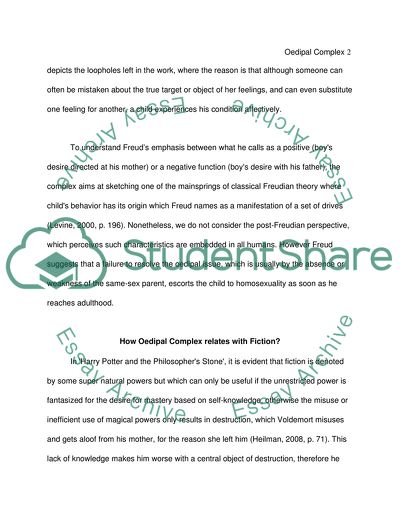Cite this document
(The Oedipal Complex in Fantasy Fiction Case Study, n.d.)
The Oedipal Complex in Fantasy Fiction Case Study. Retrieved from https://studentshare.org/literature/1724191-fantasy-fiction
The Oedipal Complex in Fantasy Fiction Case Study. Retrieved from https://studentshare.org/literature/1724191-fantasy-fiction
(The Oedipal Complex in Fantasy Fiction Case Study)
The Oedipal Complex in Fantasy Fiction Case Study. https://studentshare.org/literature/1724191-fantasy-fiction.
The Oedipal Complex in Fantasy Fiction Case Study. https://studentshare.org/literature/1724191-fantasy-fiction.
“The Oedipal Complex in Fantasy Fiction Case Study”, n.d. https://studentshare.org/literature/1724191-fantasy-fiction.


